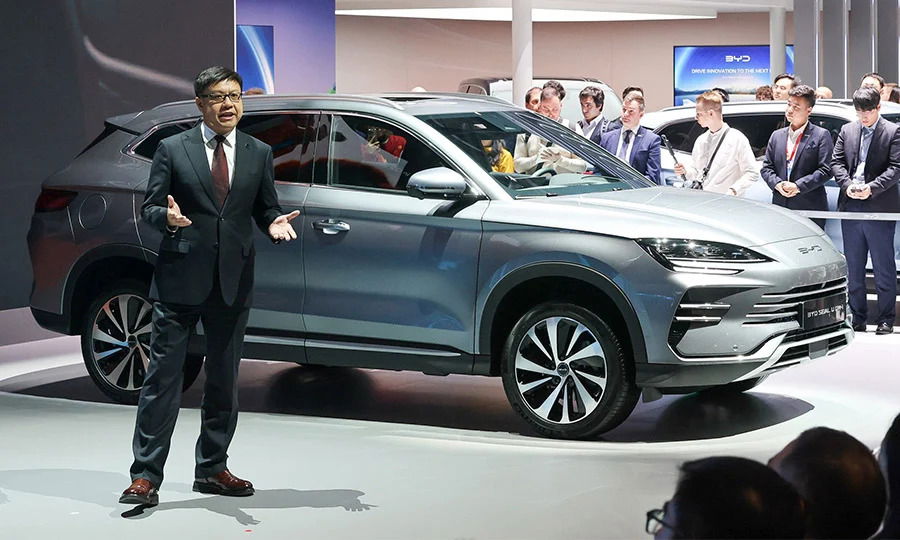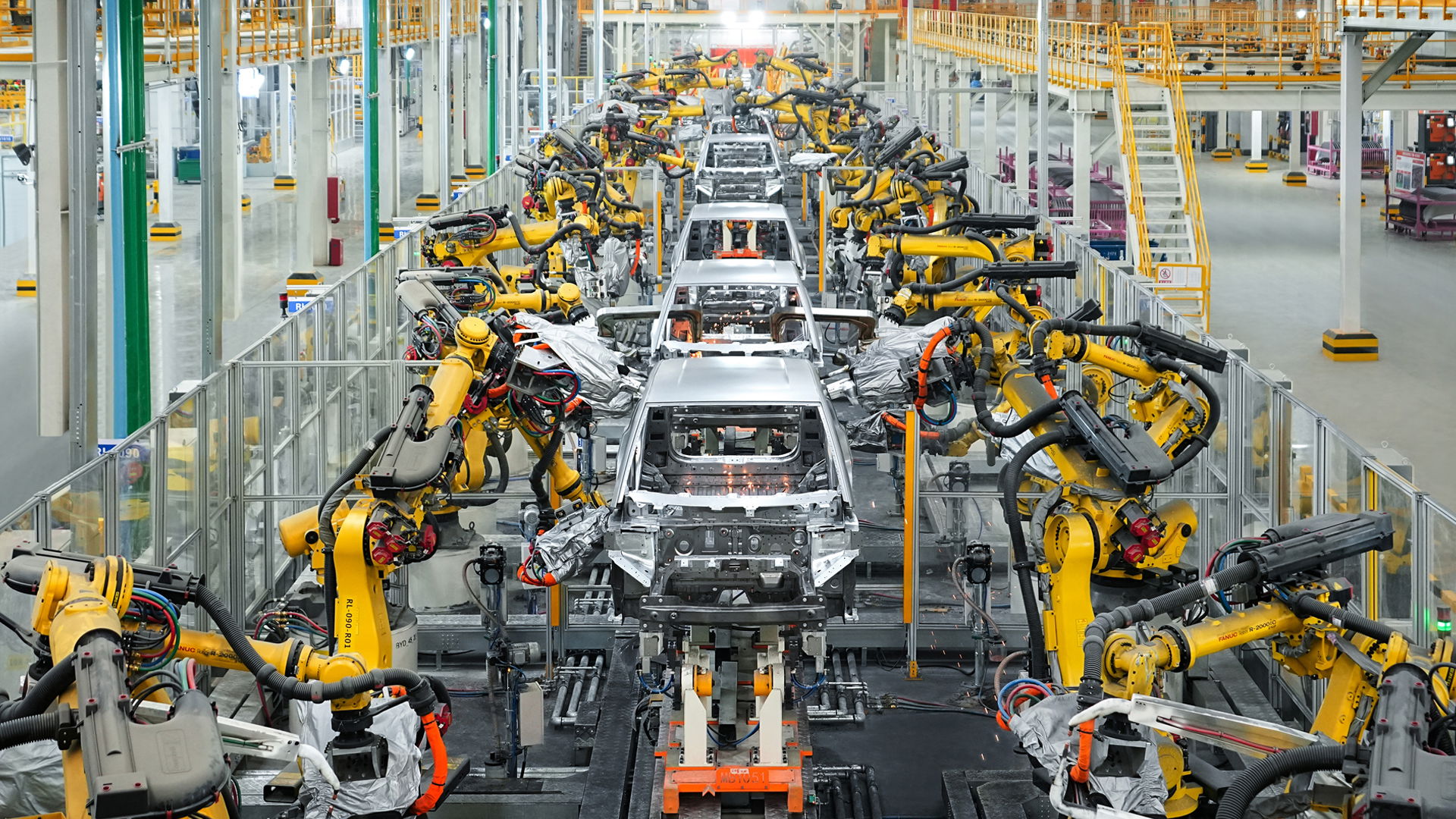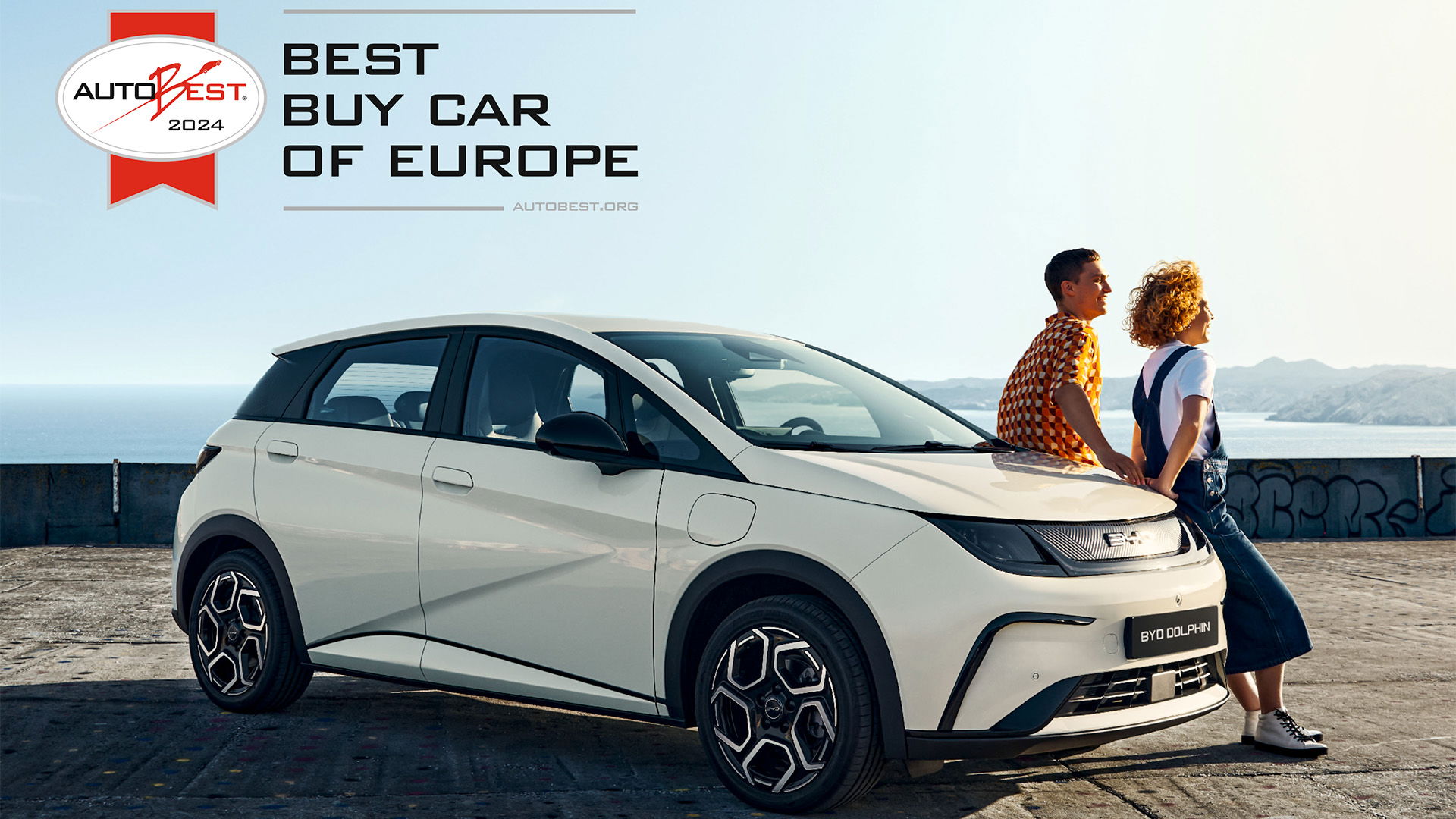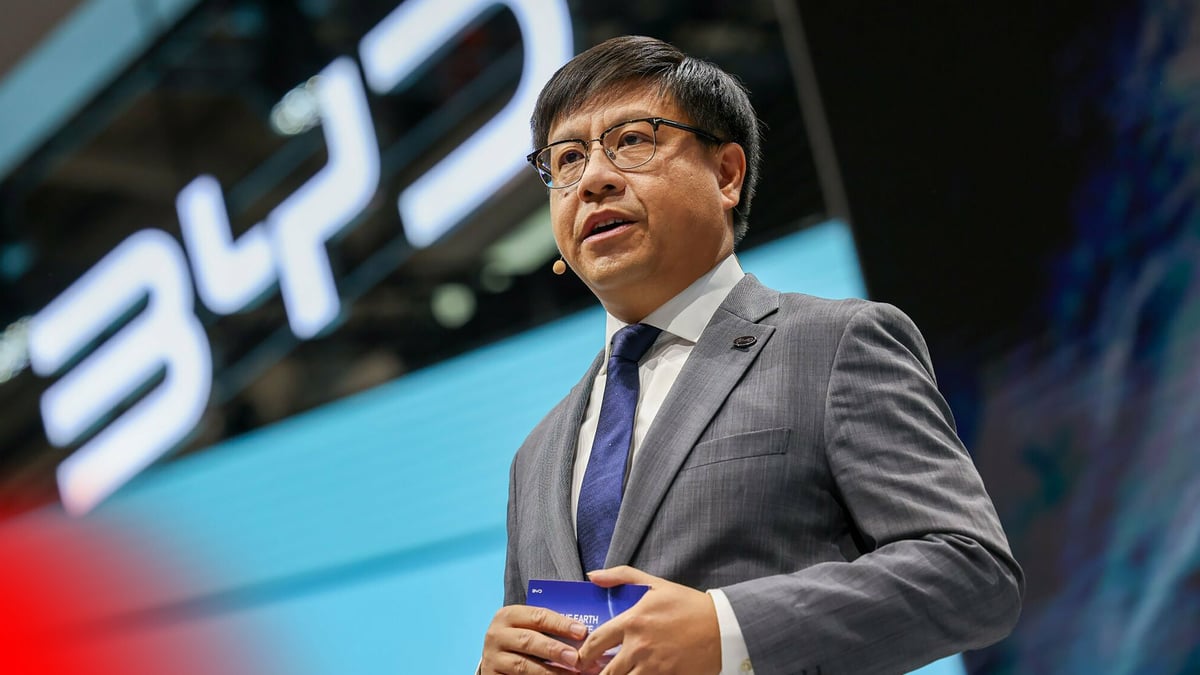“We are here to stay,” BYD CEO Michael Shu
The recent one-on-one chat between BYD Europe CEO and Automotive News on Monday, March 12, 2024 provided a glimpse into the Chinese EV maker's strategy to command its fair share of the global market within a decade.
BYD revealed its ambitious plans to dominate the European EV market with the goal of tripling its market share in the continent by 2025. This strategic move marks BYD's bold expansion into the competitive European automotive landscape after experiencing unparalleled success in its home market.
Don't Force People To Buy Electric Cars - Akio Toyoda
BYD's European Expansion Journey

Michael Shu presenting the BYD Seal at the Geneva Auto Show
Since entering the European market in 2021, BYD has made significant strides in establishing its presence, starting its EU venture in Norway. The company's sales in the region have been steadily climbing, with 15,644 electric cars sold last year alone, securing a 1.1% share of the European EV market, according to DataForce.
In a revealing interview with Automotive News, BYD Europe CEO Michael Shu emphasized that the company is just getting started in its European conquest after shifting some 16,000 all-electric EVs in 2023.
Shu highlighted the importance of understanding European consumers' preferences and adapting products and services to meet their needs in a diverse market characterized by varying regulations and languages.
“The European market is quite different from any other large-scale market such as China and the U.S., which have one legislation and one language,” Shu said during the interview. “Europe has several legislations and languages, making it quite complex. We knew this before we launched and we are here to stay.”
BYD’s Production Expansion in Hungary

BYD's strategic vision includes achieving a 5% share of EV sales in Europe even before commencing production at its upcoming facility in Hungary. Industry watchers believe this target translates to around 115,000 vehicles, including PHEVs (plug-in hybrids).
The Hungary manufacturing plant is slated to start operations before 2026, with a capacity to produce 150,000 vehicles annually, expandable to 300,000 units. By manufacturing EVs in Europe for the European market, BYD aims to offer customers faster delivery times and enhance brand trust through local production.
When asked why the company chose Hungary as the site for its Europe production plant, Shu remarked that Hungary already has cost-competitive premium brands in the country.
“Our target is to become a European company and not a Chinese company doing business in Europe,” he said. BYD's product strategy focuses on offering a blend of premium quality at mainstream prices, positioning its offerings as affordable premium vehicles.
The company’s recently introduced luxury models like the Yangwang U8 off-roader at the Geneva Auto Show, demonstrate its deftness at creating masterpieces at relatively rock-bottom prices as well as the capacity to meet the European consumer preferences with innovative and high-performance EVs.
Considering how BYD stunned the world by overtaking Volkswagen in China and currently staring down Elon Musk's Tesla in all of its markets around the world, the Chinese automaker's lofty goal of cornering the European electric vehicle market isn't so lofty anymore.
When pressed about the so-called “EV price war” ongoing in Europe, the CEO flatly said BYD has no hand in it, even though they’re aware of European and non-European (Tesla, apparently) premium brands dangling “hefty discounts” to court shoppers.
"What we have seen recently in Europe in terms of electric car pricing is too much overreaction,” said Shu. BYD was founded in 1995 as “a high-tech multinational company devoted to technological innovations for a better life.”
See also:
Orders Now Open For Europe's Cheapest Electric Car: The All-New Citroen e-C3 – Review
BYD’s Disruptive Cutting-Edge EV Models

BYD Dolphin
Pundits and industry watchers expect BYD's upcoming electric models, including the Seal U, will significantly impact the European EV market. The Seal U, boasting competitive features such as a WLTP range of up to 310 miles (500 km) and rapid charging capabilities, is designed specifically for the European market on a new platform.
Building on the success of models like the Atto 3, a top seller in Europe last year, BYD's innovation and quality should resonate with European customers seeking cutting-edge EV technology.
Shu affirmed that BYD cars will roll out the new plant in 2026 equipped with battery packs made right there in Hungary. When asked about the company’s decision to stick with the traditional distribution model in lieu of the direct sales agency model currently widely adopted by carmakers in Europe, Shu said BYD does not believe in a digital-only distribution model.
"You need the awareness in the market and on the street, seeing cars in physical dealerships. Depending on the market, we operate either with a national sales company that interfaces directly with individual dealers or with a national sales company that interfaces with a large distributor that then interfaces with individual dealers. Thus, we are very flexible, but we will not have direct sales anywhere.”
BYD’s Vision For Sustainable Growth

Photo credit: Handelsblatt
BYD's strategic approach to entering the European market is no more a commitment to drive EV adoption and transition towards a greener automotive landscape than it is about pursuing exponential global growth.
By prioritizing affordability, performance, and sustainability, BYD is positioning itself as a formidable player in the European EV segment with powerful tools to disrupt the traditional automotive industry's status quo. Does it think of itself as the Tesla of China, as perceived by many around the world? Shu doesn’t think so.
“I think this comes from people who do not understand us and do not understand Tesla. It is true that we have products that compete, such as the Seal and the Model 3, but we are very different companies.”
Whatever the case, BYD's ambitious plans signal a new era of electrification and sustainable mobility. The brand’s innovative EV lineup, commitment to local production, and customer-centric approach are brilliant, effective tools to reshape the European automotive market and emerge as a leading player in the EV revolution.
This article is based on the original interview published on Automotive News